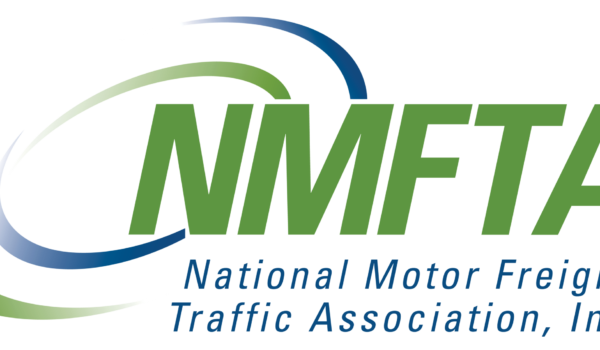DSDC Workshops Continuing to Make Progress Toward Full API Roadmap
Currently, carriers, shippers, and third-party logistics providers (3PLs) spend countless hours reconciling mismatched invoices, re-entering data, and responding to requests for status updates. Every company has its own system, creating inefficiencies and increasing the risk of errors. But what if every step of the less-than-truckload (LTL) and full truckload (FTL) shipping process—from quotes to cash—was seamlessly connected through standardized digital APIs?
The National Motor Freight Traffic Association, Inc.’s (NMFTA)™ Digital Standards Development Council (DSDC)™ is making this vision a reality. Through ongoing industry-wide workshops, the DSDC is moving toward a future where companies can implement one set of application programming interface (API) standards, improving visibility across the supply chain.
The DSDC effort has been a multi-year initiative designed to develop industrywide API standards for every stage of the shipment lifecycle. As part of this effort, NMFTA launched the Digital Full Truckload Council (FTL) in December 2024, expanding these efforts beyond LTL to ensure API adoption across all trucking segments.
So far, the DSDC’s LTL Council has already released the Electronic Bills of Lading (eBOL) API Standard (released in 2022) and Pickup Request and Visibility API Standard (released in 2024).
Using one industrywide standard will enable faster digitization and reduce errors while improving the visibility of pickups, shipments and charges between carriers and shippers. It’s a need the industry has recognized for some time as digitization moves at a quickening pace.
Industry Collaboration Driving Standardization
The DSDC workshops are where the instructions for the API standards take shape. A diverse group of industry volunteers—including carriers, shippers, 3PLs, and technology providers—meet to establish the scope, including requirements, field definitions, and logic for each API. Once the instructions are downloaded, each company’s IT staff will still have to create a working API.
“We have volunteers from all aspects of the industry,” says Paul Dugent, executive director of the DSDC. “As the industry moves toward greater digitalization, these standardized APIs will remove roadblocks, cut down on manual processes, and streamline operations for everyone.”
A committee involving a cross-section of stakeholders—including shippers, carriers, TMS, and technology providers—was crucial to ensuring a well-rounded approach, said Joe Schuh, director of I.T. for Dayton Freight Lines, Inc. “This approach ensures that all parties can voice their needs and concerns, leading to a solution that works for everyone. Maintaining a strong focus on feedback demonstrates a willingness to adapt as more organizations digitize their back-office operations to seamlessly connect all parties in the supply chain.” Schuh takes part in the eBOL and Pickup Request and Visibility workshops.
Hillary Drake, CEO of Liminal Network, agrees. “It’s been fun being a part of the process of bringing LTL into the modern age. The standards we’re developing will improve customers’ experience, reduce costs, and help businesses that adopt them be more competitive.” Drake, who takes part in the Pickup Request and Visibility, In-Transit Visibility, and Preliminary Freight Charges workshops, added that she “appreciates the Digital LTL Council’s leadership and how collaborative and open everyone has been working together to move our industry forward.”
Dyrc McLeod, founder & CEO of Highlander Tek, echoes these sentiments. “While at my first startup, I created a product to help carriers identify accessorials like Residential and Limited Access deliveries, which exposed how inconsistent terminology made auditing and cost comparisons difficult for shippers,” he shared. “That experience led me to join the Digital LTL Council to help standardize location types in the digital BOL. It’s been a great experience working with carriers, brokers, and tech providers all focused on moving the industry forward, and I continue to stay involved as this standardization now extends into truckload. I’d encourage others to get involved—this work is shaping the future of freight.” McLeod takes part in the eBOL and Preliminary Freight Charges workshops.
Jen Johnson, senior manager LTL at C.H. Robinson reinforces her colleagues’ statements: “Participating in the LTL API workshops has been an absolute pleasure,” said Johnson. “Each session offers a unique opportunity to share knowledge with other industry experts. The workshops bring together a diverse group of participants, including tech companies, shippers, LTL carriers, and 3PLs, each contributing their unique perspectives.”
“I highly recommend these workshops because they offer a platform for collective growth and innovation. By participating, you not only gain insights from a wide range of industry professionals but also contribute to shaping the future of the LTL industry,” added Johnson. “The more diverse the group, the richer the discussions and the more impactful the outcomes. Together, we can drive meaningful change and ensure that our industry continues to evolve and thrive.” Johnson takes part in the eBOL, Pickup Request and Visibility, In-Transit, and Preliminary Freight Charges workshops.
What’s Coming Next?
The API rollout is carefully structured to address industry needs in the right order for the LTL industry. Meanwhile, the Digital FTL Council is in the process of evaluating which APIs will be most beneficial for the FTL segment and where collaboration with LTL efforts makes sense:
Preliminary Rate Charges – First Half of 2025
As NMFTA updates its classification system, these APIs will help shippers anticipate cost changes before receiving final invoices.
“We thought that preliminary rate charges, which is designed to give a shipper a heads-up that their expected charges are going to change, should be moved up so they can react to that before they get the final invoice. That’s scheduled to be released the first half of this year.” said Dugent.
In-Transit Visibility
— Providing real-time updates on freight movement, improving logistics planning.
Invoicing & Financial Rate Disputes
— Simplifying financial reconciliation between carriers and shippers.
Rate Quotes
— Continuing to simplify financial reconciliation between carriers and shippers.
Cargo Loss and Damage Claims
— Standardizing claims processing to reduce friction and processing delays.
“If the industry can adopt these standards, companies won’t need to build unique APIs for each partner,” Dugent adds. “Instead, they can implement one standard and scale efficiently.”
How to Prepare and Become an Early Adopter
With API standards rolling out in phases, the time to prepare is now. Companies that start aligning their systems today will be in the best position to streamline operations, reduce errors, and improve efficiency. Dugent hopes that those in the industry recognize the value of the work that’s being done and start preparing for the APIs’ availability.
Stay Informed:
Visit dsdc.nmfta.org/apis to learn more and subscribe to the DSDC to receive updates directly to your inbox.
Take Action:
Ensure your IT team is ready to integrate these APIs when they launch.
“They can start getting in line and getting their IT resources scheduled to adopt these APIs,” said Dugent.






